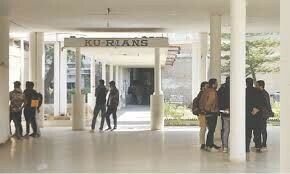KARACHI: The Sindh government on Friday signed a letter of intent with four foreign energy companies for a waste-to-energy project for production of 150 megawatts daily from the garbage produced in the city.
The signing ceremony was attended among others by Energy Minister Imtiaz Shaikh, Karachi administrator barrister Murtaza Wahab, consuls general of the United States and the United Arab Emirates, the ambassador of The Netherlands and representatives of the four energy companies.
On behalf of the provincial energy department, alternate energy director Imtiaz Shah signed the agreement with the representatives of the firms belonging to US, Denmark, The Netherlands and China.
Addressing the ceremony, the energy minister said that under the slogan of “Green Energy, Clean Karachi” the provincial government had signed the letter of intent with world’s reputed energy companies, achieving another milestone as the waste-to-energy project would produce 150MW to 175MW of energy daily from garbage collected from the city.
“This project will not only help clean the garbage from city, but it will also help meet our energy requirements,” he added.
Mr Shaikh said that the unique waste-to-energy project had been planned according to the vision of PPP chairman Bilawal Bhutto-Zardari and this project would be expanded to other cities of the province in future.
He said that the provincial government would provide land for the project at a landfill site in the city. “An approximate investment of 600 million US dollars is expected in this project and about 6,000 to 8,000 tonnes of waste will consumed daily for production of 150 megawatts of energy daily through this project,” he said.
The energy minister said that Sindh again took a lead in the country by not only preparing a Sindh waste-to-energy policy, but also initiating waste-to-energy projects in the province.
He said that Karachi alone produced over 15,000 tonnes of municipal waste, while other cities in the province approximately 2,000 tonnes each day, besides agriculture waste in the form of bagasse, cotton sticks and rice husk. “Converting this waste into energy can generate significant amount of electricity.”
He said that the waste-to-energy policy of the province would utilise resources and dispose of the waste efficiently.
Energy secretary Abu Bakar Madni told the participants in the meeting that the conventional landfill sites usually failed to exploit the potential of waste as an energy resource.
“The anaerobic decomposition of organic waste in landfill sites leads to the release of methane to atmosphere, which is not usually controlled and captured and as such it has been one of the most negative side effects of landfill sites.”
He said that waste-to-energy referred to a variety of treatment technologies that converted waste into electricity.
Published in Dawn, April 2nd, 2022












































Dear visitor, the comments section is undergoing an overhaul and will return soon.